The Best MIDI Keyboard Controllers 2023 - All Prices
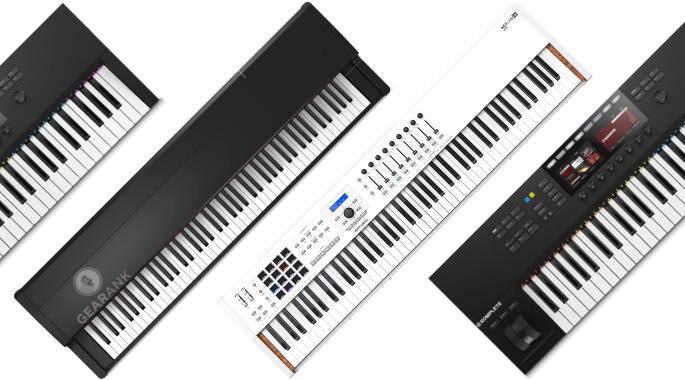
Author & Contributors
Raphael Pulgar
I've been an audio engineer for 20 years specializing in rock and metal recordings. I also play guitar and produce original music for my band and other content creators.
Best MIDI Keyboard Controllers Under $200
Arturia MiniLab MkII with 25 Slim Keys
Cons
- Knobs feel cheap
- Touch strips feel like a compromise
- Pads a bit small
Pros
- Great value for money
- Lots of encoders and pads
- Synth action keys feel great
Once I decided using a keyboard would be a better approach than programming individual notes, one of my main requirements was a small form factor so I had to limit myself to 25 Keys. I'm not a piano player so I figured that I wouldn't need more keys than that. Other than that, I was in the market for an affordable but versatile 25-Key MIDI controller.
It was down to choosing the Arturia Minilab MKII and the Akai Professional MPK Mini MKIII. I chose the Arturia because I didn't like the "joystick" mod wheel and pitch control on the MPK Mini MKIII. While the Minilab MKII doesn't have a traditional modwheel, the touch strips made better sense to me.
The unit was plug and play and my DAW (Presonus Studio One) instantly recognized it as a new device. Arturia provides a software suite that automatically maps to the encoders and pads. Manual mapping for other software synths and samplers is also easy to do.
I already have a software synth by Arturia called "Pigments" and the MIDI Controller works excellently with it. Other software like Native Instruments Kontakt also integrates well with it.
Buildwise, the MiniLab MkII feels solid. Even though it's made of plastic, I didn't feel any excess plastic residue and everything feels solid with no internal rattle when I shake it. The keys are finished nicely and the resistance is just right for synth action. There were some keys that were fractions of an inch higher or lower than the others but it's not really a major issue.
The knobs felt a bit flimsy to the touch but the potentiometer rotation is smooth and consistent across all knobs. The pads felt a bit small but I rarely use them. Still, if you like making beats on pads, the layout and size might not be the best especially for harder hitters.
What I don't like about the Minilab MkII is the fact that I had to settle with touch strips instead of pitch and mod wheels. I would have preferred even a smaller integration of the two wheels as long as it's mechanical. The strips work fine but I do feel it lacking in precision especially when my left hand's fingers are calloused from guitar playing.
Even years after its release, the MiniLab MkII is still popular and can be seen gracing the desks of prolific and talented musicians all over the world.
Specifications
- Keys: 25 Slim Synth Action Keys
- Pads: 8 RGB Pads
- Controls: 16 Encoders, Octave, Pitchbend, Mod Touch Strips
- Octave: 4 Octaves (+/-)
- Zones: 1
- Automap: Yes (On some DAW Software)
- Connectivity: USB
- Control Hardware Directly: No
- Compatibility: OSX 10.7 (Up), Windows 7 SP1 (Up)
- Power: USB Bus Powered
- Dimensions: 14" x 8.7" x 2"
- Weight: 3.3 lbs.
- Bundled Software: Ableton Live Lite, UVI Grand Piano, Analog Lab Lite
| Website | Source | *Rating Value |
| Gearank | Raphael Pulgar | 93/100 |
| MusicRadar | Computer Music | 90/100 |
| ask.video | Matt Vanacoro | 92/100 |
Akai Professional MPK Mini MK III
Cons
- The small keys are a put-off if you're used to full-size keys
Pros
- Solid, durable build
- The pads are nice and big
- Great as a portable controller to use with a laptop
The Akai Professional MPK Mini MKIII is a feature rich, compact, 25-key MIDI Controller for the producer on the go.
Despite its diminutive size, the MPK Mini MK III features 25 synth action mini-keys and 8 backlit performance pads with note repeat.
A 4-way pitch and modulation joystick and 8 assignable knobs rounds out the controls.
The unit also features tap tempo and an arpeggiator.
Inspiration can strike anywhere and any time so get the MPK Mini MK III if you want something you can bring along with your laptop setup.
Specifications
- Keys: 88 Fully-weighted, velocity sensitive Fatar Keybed with aftertouch
- Pads: 16 x RGB Backlit Performance Pads
- Controls:9 x Rotary Encoders, 9 x Faders, Pitchbend, Mod Wheel
- Octave: up/down
- Automap: no
- Connectivity: USB, MIDI In/Out , 1 x 1/4" TS (sustain)
- Control Hardware Directly: no
- Compatibility: OS X 10.8.5 or later, Windows 7 SP1 or later
- Power: USB Bus Powered
- Dimensions: 12.5" x 7.13" x 1.75"
- Weight: 1.65 lbs.
- Bundled Software: MPC Beats Software
| Website | Source | *Rating Value |
| Sound On Sound | Simon Sherbourne | 96/100 |
| ask.audio | Hollin Jones | 96/100 |
Best MIDI Keyboard Controllers Under $500
Novation Launchkey 49 MK3
Cons
- The keys feel a bit cheap
Pros
- Ableton Live integration is very well done
- The knobs, faders and pads are all well-built
Novation has taken user feedback on its Launchkey MK2 series and implemented improvements in the MK3 series.
Aside from being a keyboard controller, it also includes Ableton Live clip launching pads that double as performance pads.
The Novation Launchkey 49 MK3 features new compositional tools like new scale modes, chord modes, and a mutate feature that rearranges your patterns to form new musical ideas.
The new iteration now features MIDI out via 5-pin MIDI DIN Connection - this enables control of analog synths.
The only issue is the keybed - the synth action keys are quite light which won't suit you if you are used to hammer action keys, but they're still better than most other low-cost synth action 49-key competitors.
If you're looking for a controller that's fully integrated with Ableton Live, but versatile enough to be used with other DAWs, the Novation Launchkey 49 MK3 is a great pick.
Specifications
- Keys: 49 Synth action, velocity sensitive keys
- Pads: 16 x RGB, Velocity-sensitive Pads
- Controls: Pitchbend, Mod Wheel, 8 x Rotary Knobs, 9 x 45mm Faders, Transport (Play, Stop, Record, Loop)
- Octave: up/down
- Automap: Yes (Ableton Live)
- Connectivity: USB, MIDI Out , 1 x 1/4" (sustain)
- Control Hardware Directly: yes
- Compatibility: OS X 10.11 or later, Windows 7 SP1 or later
- Power: USB Bus Powered
- Dimensions: 31.06" x 10.16" x 3.03"
- Weight: 6.68 lbs..
- Bundled Software: Ableton Live Lite, Virtual Instrument and Sample Plug-in Bundle
| Website | Source | *Rating Value |
| Sound On Sound | Robin Vincent | 90/100 |
| MusicTech | Alex Cummings | 90/100 |
Novation Launchkey 61 MK3
Cons
- The light-weight keys feel a bit cheap
Pros
- Great integration with Ableton Live
- The knobs, faders and pads are all well-built
- Overall weight is low making it highly portable for a 61-key option
The largest of the Launchkey MK3 series, the Launchkey 61 MK3 carries over the features of the lineup including performance pads, assignable faders and knobs, and the new compositional tools for scale and chord modes
One improvement since the Mk2 version is that they've moved the pads to the left which I think is a more natural position for them, particularly if you're mainly a one handed player like me.
With 61 keys, two handed playing becomes easier, especially for people accustomed to the piano.
Other than that, it is basically the same as the Launchkey 49 above, just with more keys.
Given its feature and key count, the Launchkey 61 MK3 is an incredible value option. Get it if you want an affordable, fully integrated, large format controller for Ableton.
Specifications
- Keys: 49 Synth action, velocity sensitive keys
- Pads: 16 x RGB, Velocity-sensitive Pads
- Controls: Pitchbend, Mod Wheel, 8 x Rotary Knobs, 9 x 45mm Faders, Transport (Play, Stop, Record, Loop)
- Octave: up/down
- Automap: Yes
- Connectivity: USB, MIDI Out , 1 x 1/4" (sustain)
- Control Hardware Directly: yes
- Compatibility: OS X 10.11 or later, Windows 7 SP1 or later
- Power: USB Bus Powered
- Dimensions: 31.06" x 10.16" x 3.03"
- Weight: 6.68 lbs..
- Bundled Software: Ableton Live Lite, Virtual Instrument and Sample Plug-in Bundle
| Website | Source | *Rating Value |
| Sound On Sound | Robin Vincent | 90/100 |
| YouTube | loopop | 84/100 |
Arturia KeyLab 49 mkII
Cons
- It's not cheap so I would have liked to see a bigger screen at this price
Pros
- The semi-weighted keys have a nice feel to them
- Solid, roadworthy piece of gear
- Analog Lab comes bundled free
The KeyLab 49 has a few things in common with Arturia’s flagship MatrixBrute synth; namely the latter's velocity sensitive aftertouch keybed.
With 9 faders, 9 encoders, 4 CV outputs, 5 expression control inputs, including great bundled software, the Keylab 49mkII is nothing short of feature-packed.
All housed in a sturdy aluminum body that I'd be happy to take on the road.
It also comes in the two colors pictured above, so you won't have any problem getting one that fits with the aesthetics of your studio.
In addition to an excellent keyboard, you also get Arturia's Analog Lab bundled with it for free, which usually sells for $199. This plugin has way too many sounds and presets to describe here, but you can download a free trial copy to test - the piano sounds don't disappoint!
With its excellent keybed as the star, the KeyLab 49 is sure to satisfy the most sensitive of touches; a feat in itself for a MIDI Controller.
Specifications
- Keys: 49 semi-weighted, velocity sensitive with aftertouch.
- Pads: 16 x Back-lit RGB Performance Pads
- Controls: 16 Encoders, Octave, Pitchbend, Mod Touch Strips
- Automap: Yes (On some DAW Software)
- Connectivity: USB, 1 x 1/4" (sustain), 1 x 1/4" (expression), 3 x 1/4" (aux), MIDI In/Out/USB, 1 x 1/8" (CV in), 4 x 1/8" (CV out, Gate out, Mod 1, Mod 2)
- Control Hardware Directly: Yes
- Compatibility: OSX 10.7 (Up), Windows 7 SP1 (Up)
- Power: USB Bus Powered
- Dimensions:31.2" " x 11.7" " x 2.1"
- Weight: 13.8 lbs.
- Bundled Software: Ableton Live Lite, UVI Grand Piano, Analog Lab Lite
| Website | Source | *Rating Value |
| Sound On Sound | Simon Sherbourne | 90/100 |
| Strong Mocha | Thorsten Meyer | 100/100 |
Best MIDI Keyboard Controllers Under $1000
Yamaha MX61 Music Synthesizer V2
Cons
- Its large number of features require a lot of learning time
Pros
- Extra value of being both a Synth and a Controller
- Integrates well with most popular DAWs
- Low weight makes it quite portable
- Good range of quality built in sounds
- Built-in USB audio allows digital recording
The Yamaha MX61 V2 is a hybrid synth/controller.
It is a full-featured synth with circuit-level modelling thanks to Yamaha's VCM (Virtual Circuit Modelling) FX module and MOTIF sound engine.
As a MIDI Controller, it features MIDI via USB or 5-Pin connection.
As a DAW controller its assignable knobs allow you to control plugins directly from the keyboard as well as providing essential transport controls.
It also acts as a class compliant USB audio interface which allows you to record the on-board sounds directly to your DAW.
At only 10.6 lbs. it's easy to pick up, and despite having a plastic enclosure I would be happy to take it on the road; with a proper case of course.
If you want a MIDI Keyboard that doubles as a synthesizer or vice-versa, the Yamaha MX61 V2 is an excellent choice and would fit a variety of needs, especially once you get past the MIDI Keyboard learning curve.
Specifications
- Keys: 61 Synth-action, touch sensitive keys
- Pads: None
- Controls: Pitchbend, Mod Wheel, 4 assignable knobs + Multifunction AI Knob, Octave, Transpose, Synth controls
- Octave: up/down
- Automap: Yes
- Connectivity: USB, MIDI In/Out ,1 x 1/8" (aux in), 2 x 1/4" (main out), 1 x 1/4" (Headphones), 2 x 1/4" (sustain, controller)
- Control Hardware Directly: yes
- Compatibility: OSX 10.7 (Up), Windows 7 SP1 (Up)
- Power: 12V DC power supply (included)
- Dimensions: 38.7" x 11.7" x 4.4"
- Weight: 10.6 lbs.
- Bundled Software: Cubase AI included, FM Essential iOS synth app
Arturia KeyLab 88 MKII
Cons
- Keys feel slightly spongy compared to the more expensive Kawai VPC1
Pros
- The Fatar keybed is one of the best in this price range
- CV/Gate lets you control old analog synth hardware
- Has both 5-Pin and USB MIDI
- Solid metal build
The Arturia KeyLab 88 MKII is a full-size MIDI Controller with 88 Fatar weighted keys.
It also features a complete suite of controls, pads and faders that are all fully assignable to any parameter in your DAW.
Other nifty features include a music sheet/ipad stand and a laptop extension shelf.
If you're into old modular analog synths you'll appreciate the 4 CV outputs and it even comes with 1 CV input. And with both 5-pin and USB MIDI you can connect to and control just about any electronic music gear.
Arturia's Analog Lab is bundled in for free and it not only includes some great sounds but also allows you to save patch playlists.
And perhaps one of the features that you'll appreciate the most, setup is easy and straight forward with most DAWs.
If you're accustomed to playing piano and would love to have a similar response in a MIDI Controller, the KeyLab 88 is a solid pick and is peerless at this price point.
Specifications
- Keys: 88 hammer action, Weighted Fatar TP/100LR Keybed
- Pads: 16 x RGB Backlit Performance Pads
- Controls:9 x Rotary Encoders, 9 x Faders, Pitchbend, Mod Wheel
- Octave: 2 Octaves (+/-)
- Automap: Yes
- Connectivity: 1 x 1/4" (sustain), 1 x 1/4" (expression), 3 x 1/4" (aux pedals), MIDI In/Out/Thru/USB, CV; Pitch out, Gate out, Mod 1, Mod 2, CV in,
- Control Hardware Directly: Yes
- Compatibility: OS X 10.11 or later, 64-bit , Windows 7 SP1 or later, 64-bit
- Power: External AC adapter
- Dimensions: 50.9" x 12.7" " x 4.4"
- Weight: 32.4 lbs.
- Bundled Software: Ableton Live Lite, Analog Lab Software
| Website | Source | *Rating Value |
| Strong Mocha | Thorsten Meyer | 100/100 |
| Sound On Sound | Simon Sherbourne | 93/100 |
Best MIDI Keyboard Controllers Over $1000
Native Instruments Komplete Kontrol S88 MK2
Cons
- Those who play hammond style organs will find its piano action isn't the best for organ slides
Pros
- Best for integration with NI Komplete Software
- The Fater keybed strikes a good balance between piano-like hammer action and synth action feel
- KOMPLETE SELECT is included free
The Komplete Kontrol S88 MK2 is a controller that fully synergizes with Native Instruments' KOMPLETE virtual instrument and audio library.
Despite being made specifically to control KOMPLETE, it is also capable of being mapped to other software and can function as a general DAW controller. It comes with KOMPLETE SELECT bundled for free, which is a useful addition if you're not already part of the NI KOMPLETE ecosystem.
The full 88-key Fater keybed gives a sense of familiarity to piano players while offering premium feel and response to users accustomed to synth action keys. The fast recovery of the keys aids in performing faster staccato phrases especially for synth sounds, although note that they have a slightly heavier feel than other hammer-action keyboards in this guide. Note that this is a step up from the smaller 49 and 61 key versions that only have semi-weighted keys.
One of the big improvements over the MK1 version is the addition of two big LCD screens which enable you to make selections without having to go for your mouse or look at your computer screen - this saves a lot of time when doing production work.
The transport controls work with Ableton Live, Logic X, GarageBand, Cubase Artist and Nuendo.
For the best combination of Native Instruments integration and acoustic piano playing feel, there is no substitute for the Komplete Kontrol S88 MK2.
Specifications
- Keys: 88 Fully-weighted, velocity sensitive Fatar Keybed with aftertouch
- Pads: 16 x RGB Backlit Performance Pads
- Controls:9 x Rotary Encoders, 9 x Faders, Pitchbend, Mod Wheel
- Octave: 2 Octaves (+/-)
- Automap: Yes
- Connectivity: 1 x 1/4" (sustain), 1 x 1/4" (expression), 3 x 1/4" (aux pedals), MIDI In/Out/Thru/USB, CV; Pitch out, Gate out, Mod 1, Mod 2, CV in,
- Control Hardware Directly: Yes
- Compatibility: OS X 10.11 or later, 64-bit , Windows 7 SP1 or later, 64-bit
- Power: External AC adapter
- Dimensions: 50.9" x 12.7" " x 4.4"
- Weight: 32.4 lbs.
- Bundled Software: Ableton Live Lite, Analog Lab Software
| Website | Source | *Rating Value |
| Sound On Sound | Nick Magnus | 84/100 |
| AudioTechnology | Preshan John | 92/100 |
Kawai VPC1 Virtual Piano Controller
Cons
- No DAW control features
Pros
- The keybed gives the closest response to an acoustic piano currently available in a MIDI controller
- Very quiet keys - you can record in the same room as vocalists with no issue
- Very expressive keys - captures subtle dynamic differences well
Instead of piling on controls, screens and faders, the VPC1 aims to replicate the feel of a true, hammer-action piano, not dissimilar to their acoustic piano offerings.
That forms Kawai's design philosophy for the VPC1: a product designed for piano players that prefer to use the best virtual piano instruments.

Kawai F30 Triple Pedal Foot Controller
The graded hammer action changes the weight of the keys as you go up the keyboard similar to how an acoustic piano works enabling you to capture a more realistic piano feel to your recordings.
Kawai has provided an interactive demonstration of the key action - see it on their website.
It also comes with the F30 grand piano style foot controller as pictured.
If you own a studio or are a piano player that desires the most realistic feeling Piano format MIDI controller on the market today, look no further than the Kawai VPC1.
Specifications
- Keys: 88 RM3II Wooden-key, Graded-hammer Action with Counterbalancing
- Pads: None
- Controls: None
- Connectivity: USB, MIDI In/Out , 1 x Damper, 1 x Sustain, 1 x Soft (Includes Triple-pedal Unit)
- Compatibility: OSX 10.7 (Up), Windows 7 SP1 (Up)
- Power: USB Bus Powered, AC Adaptor
- Dimensions: 54.33" x 16.75" x 7.33"
- Weight: 65 lbs.
- Bundled Software: Ableton Live Lite, UVI Grand Piano, Analog Lab Lite
| Website | Source | *Rating Value |
| Audiofanzine | David Studhalter | 100/100 |
| YouTube | PianoManChuck | 85/100 |
Things to Consider When Buying a MIDI Keyboard Controller
-
Not all keyboards follow the standard piano size and action because it's not always applicable, especially when considering portability. This is the reason why there's a big difference between a Digital Piano vs Keyboard. And is the reason why compact controllers come with slim size keys, which requires some technique adjustment for those who are used to standard size keys.
Key weight and action refers to how hard you have to press the keys to trigger a sound. Synth action keys have the softest playing feel, while fully weighted (hammer action) ones need a bit more force, similar to an acoustic piano. Others offer something in between, which they call semi-weighted. Velocity sensitivity refers to how the keys respond to the dynamics of your playing or how forcefully you press the keys. While Aftertouch adds effects depending on the pressure you apply as you hold down a note.
Your choice of size, action and sensitivity will boil down to your budget and preference, which is usually similar to what you are used to playing.
-
Zones let you split the keyboard into multiple sections which each transmit on separate MIDI channels. An example of this type of usage is when you have one sound module for bass sounds and another for piano or synth sounds and you split the keyboard so that your left hand plays the bass sounds while your right hand plays the other sounds. These days many MIDI controllers do not have this feature built-in, but DAWs and some plugins will allow you to set virtual zones to your preference. Note that you need this feature on the keyboard to do it when directly controlling hardware without a computer in the loop.
-
If you're looking for more control over your notes, you'll want a controller with pitch bend and modulation. Other features like encoders, buttons and faders allow for even more expressive control over parameters in real time, and they can be used to control your DAW software and plugins.
-
Most are now using MIDI controllers to trigger virtual instruments in computers, and this is done mostly via USB, but there are some that allow for wireless use via Bluetooth. To trigger other hardware like analog synthesizers, you'll need a controller with a 5-pin MIDI cable connection.
-
While most MIDI controllers have auto-mapping, they are usually limited to specific software. And since DAWs and plugins can be very different - it will benefit you to get a MIDI controller that is designed to integrate well with your preferred music production software, otherwise you'll have to manually map the keyboard to your software.
-
Transport controls allow you to gain control of essential recording and playback controls right on your MIDI keyboard, this usually includes play, record, stop, forward, rewind - much like old tape machines.
-
Some controllers come with motorized knobs and faders, which mechanically move to match the current settings in your DAW. This is a convenient feature to have, but since it requires additional moving parts it adds to the overall weight and bulk of the unit, and will generally add to the cost.
-
If you are going for portability, look for MIDI keyboards with built-in rechargeable batteries. If you're going to use the controller on a fixed setup and you want to reduce cable clutter, then go for those that draw power from USB. If you're going for units that draw power from wall warts (AC Adapters), you'll need to ensure that you have enough nearby electrical ports to plug into. Note that if you chose USB power with an iPad then you may need to get an additional powered USB hub due to the iPad's lower power output than standard USB allows for.
-
Balancing portability and functionality is tricky yet important if you want to be musically productive. If you're going to make music while on the move, you're going to want to sacrifice some features and go for something light and compact. On the flipside, you should go for bigger controllers if you're style of music requires you to play conventional piano style music - these are ideal if they are simply going to stay in your home studio.
Keybed: Key Size, Weight, Action, Velocity and Aftertouch
Number of Zones
Mod Wheels, Pads and other Control inputs
Controlling Hardware Directly vs Connecting to Computers
Auto-Mapping & Software Integration
Transport Controls
Motorized Controls
Power Supply: USB, Batteries & A/C Adapters
Dimensions & Weight
Best MIDI Keyboard Controller Selection Methodology
The first edition was published in 2018.
Since we have published guides for top rated MIDI keyboards based on their number of keys, we decided to focus on finding the best MIDI keyboard controllers within popular price ranges. To achieve this, we gathered a huge amount data from relevant reviews, ratings and discussions that totaled to over 59,900 sources for 106 MIDI keyboards. The sources were then processed by the Gearank Algorithm to produce rating scores out of 100 that we used to rank the controllers within each price bracket. For more information about our methods see How Gearank Works.
About the Author and Contributors
Here are the key people and sources involved in this guide's production - click on linked names for information about their music industry backgrounds.
Lead Author & Researcher
Raphael Pulgar
I've been an audio engineer for 20 years specializing in rock and metal recordings. I also play guitar and produce original music for my band and other content creators.
I use my Arturia MiniLab MKII with virtual instrument and sample libraries like NI Miroslav Philharmonik 2, Kontakt, Absynth, Toontrack Superior Drummer 3, Toontrack EZKeys, Spitfire Audio, Roland ZENOLOGY, and a few other smaller VST instruments.
Contributors
Jason Horton: Supplemental writing, Editing and Illustrating.
Media
Main/Top Image: Created by Gearank.com using photographs of the Kawai VPC1, Arturia KeyLab 88 MKII and NI Komplete Kontrol S88 MK2.
The videos have been embedded in accordance with YouTube's Terms of Service.
The individual product images were sourced from their respective manufacturers' websites, promotional materials or supporting documentation.



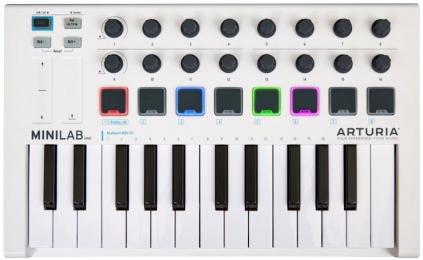
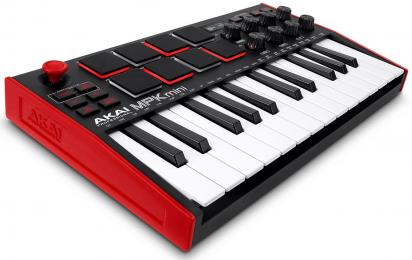


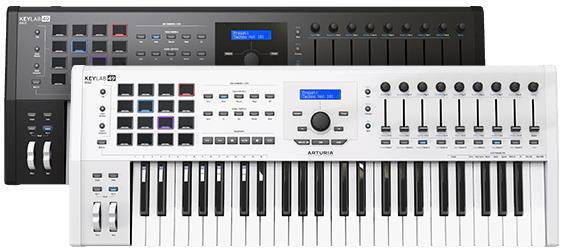

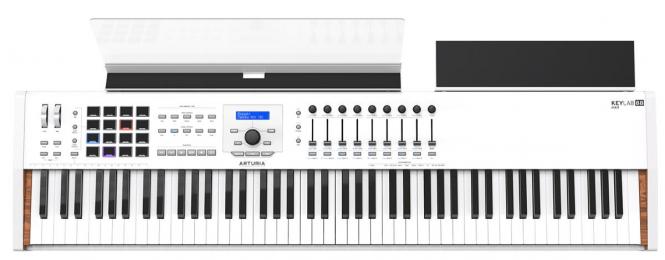


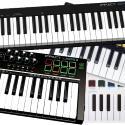
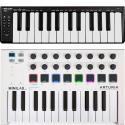
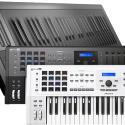
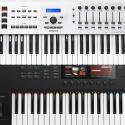
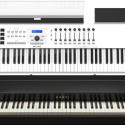
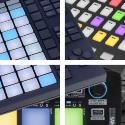
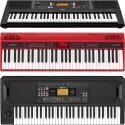
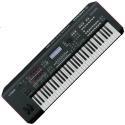
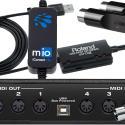
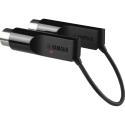
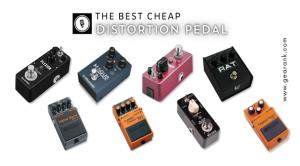
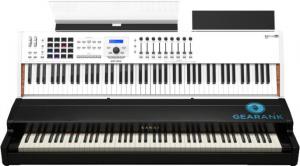
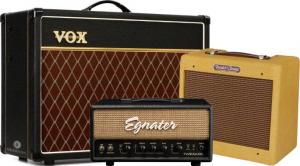
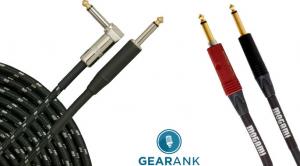
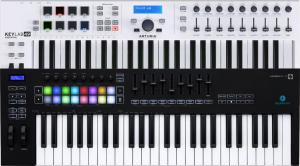
Comments
Publication of our June 2021
Submitted by Jason Horton on
Publication of our June 2021 Edition resulted in the following keyboards coming off the recommended list above, but you can still see our analysis of them:
Specifications for Novation
Submitted by Anon (not verified) on
Specifications for Novation SL49 MkII are wrong
Thanks for pointing out that
Submitted by Jason Horton on
Thanks for pointing out that we had the wrong keyboard's specifications listed for the Novation 49SL MkIII - I've fixed that just now.